So, was the Bosphorus expedition a chance? Part of 1. Unrealized Opportunities - 1915 Year
1. S.D. Sazonov
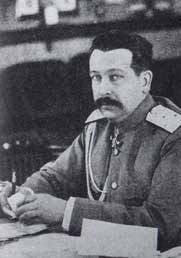
2. N. N. Yanushkevich
The diplomat was told that the question of a military operation in the Straits would be raised: a) only after a decisive success in the confrontation with Germany and Austria-Hungary and b) if after achieving such success it is not possible to seize the Straits and Constantinople by diplomatic means.
20. 01. X. NUMX Mr. W. Churchill informed Russia about the imminent start of the Dardanelles operation, expressing the hope that she would actively assist her by undertaking a naval operation near the Bosporus and preparing troops for the use of the success achieved.
After the start of the Dardanelles operation, a meeting was held at Headquarters - on what should be done if the Black Sea Fleet and the Anglo-French squadron, breaking through the Straits, approach the Turkish capital. At the meeting, it was noted that after the Goeben temporarily failed (having blown up the Bosphorus on Russian mines), the chances of the Black Sea fleet were high, but the situation was different in the question of the landing operation - there were supposedly no “free troops”.
The stake was skeptical about the landing operation - but since the Emperor was a supporter of the Bosphorus operation, preparations began for it. 24 February The headquarters notified the Foreign Ministry that in the event of a successful Allied breakthrough through the Straits, one Caucasian army corps from the Caucasian Front would be seated on transports and moved to the Bosphorus.
S.D. Sazonov took the news of the formation of the landing corps to capture the Bosporus with satisfaction, but considered that these forces were not enough. Moreover, the Allies have allocated a powerful army for their landing operations.
28 February S.D. Sazonov addressed the headquarters with a request for the possibility of sending additional troops to the Bosphorus. Not hoping for a positive response from the Supreme Commander, he simultaneously addressed a note to the emperor. But the bid response was negative.
The final issue of the start of the Bosphorus operation was resolved on March 1. NN Yanushkevich confirmed (the Allies were also notified) that in case of a breakthrough of the Anglo-French in the Straits, a corps from the Caucasian army would be pushed to the Bosphorus - its loading on the transports will take place in Batum.
Captain 2 Rank Aprelev, an officer in the Naval Control Bureau, posted an entry on February 18 in his diary indicating that an 36000 man (3-I Caucasian Rifle Division, 1-I and 2-I Plastun Brigades) had been assigned to the landing party [Excerpts from the diary cap. 2 rank Apreleva / / Foreign marine collection. Pilsen. 1930. No. 11. C. 9-10].
March 8 a request was received from the allies - when it is possible to conduct a joint attack of the Bosphorus, subject to the entry of the Allied fleet into the Sea of Marmara, as well as when it is possible to count on the Russian corps [Lukin V. K. Notes on the combat activities of the Black Sea Fleet during the period 1914 - 1918. SPb., 2008. C. 133].
After the agreement on the Straits was developed (the British, and then the French, in March-April 1915 agreed to the passage of the Straits and Constantinople to Russia) S. D. Sazonov urged the Allied ambassadors to take a radical decision on this issue. With him was in solidarity and the Emperor. The head of the Russian Ministry of Foreign Affairs, together with the Allied ambassadors, prepared a memorandum (memorandum) submitted to the governments of England and France. It contained requirements for the inclusion of the West Bank of the Bosphorus, Constantinople, Southern Thrace, the Sea of Marmara and the Dardanelles into Russia. The document was supported by the allies, and the British ambassador of March 13 even asked to inform "the emperor personally" about England’s agreement with the demands of Russia.
And the pace of preparation of the landing operation has increased. The headquarters informed the allies that an amphibious corps was being formed in Batum and Odessa - and as soon as the Anglo-French fleet, breaking through the Dardanelles, enters the Sea of Marmara, it will advance to the shores of the Bosporus. The composition of the expeditionary corps was very interested in the allies - and the Russian Foreign Ministry reported to 31 in March at the request of G. Kitchener that it was a full-blooded corps under the command of Lieutenant General N. M. Istomin.
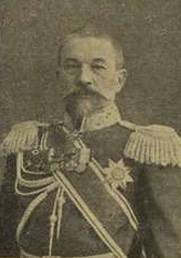
3. N. M. Istomin - Commander of the 5 Caucasian Army Corps
G. Kitchener, making up the combat schedule of the Entente forces storming the Straits, determined the English contingent in 63100 man and 133 guns, the French contingent in 18000 man and 40 guns and the Russian contingent in 47600 man and 120 guns. Total - 128700 people and 298 guns, with more than half of the group consisted in Russia and France.
As a result of the Sarykamysh victory, it became possible to allocate the necessary forces for the planned operation. In March-April, 1915 carried out a concentration of forces and equipment on the orders of the General Headquarters - initially the 5 Caucasian (reserve command of the Caucasian army) and the 2 army corps were assigned to the landing operation, which began to concentrate in the Black Sea ports - first of all in Odessa. The operation was handed over to the commander of the 7 th (separate) army, General of Artillery VN Nikitin [RGVIA. F. 2003. Op. 1. D. 501 (1)].
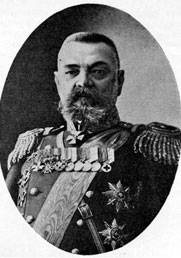
4. V.N. Nikitin
Archival documents indicated that the project of the Bosphorus combined (i.e., land-sea) operation could have been a success. [RGVIA. F. 2003. Op. 1. D. 502 (3)] if the following conditions exist: the landing of troops simultaneously in several ports (no more than 1 divisions and 1 artillery brigades in each), the landing points of the respective railway infrastructure, each group of transports focuses on its landing point [L. 142]. The success of the operation depended on the thoroughness of the preparation [L. 143].
The purpose of the operation is to acquire the shores of the Bosphorus, the Thracian coast to Chataldzhi, the Vytifinsky coast from the Bosphorus to Sakaria [L.128].
Amphibious troops during the transfer should have food and fodder for 7-day (in addition to stocks in the train), the necessary supply of fresh water (to be delivered by sailors). After the landing, the 5 troops of the Caucasian Army Corps were to be based on Odessa.
On April 5, in a telegram to the governor of the Caucasus, it was noted that for the convenience of landing - landing the 5-th Caucasian Army Corps, concentrated in the Batumi region, was decided to transfer part to Odessa and part to Sevastopol. The corps headquarters, both Plastun brigades, artillery and corps institutions were to go to Sevastopol, and the 3-I Caucasian Rifle Division - to Odessa [Lukin V. K. Decree. cit. C. 134].
5. The emperor among the plasters. Chronicle of War
But the Allies' reckoning for quick success in the Dardanelles was not justified - the April landing operation of the Anglo-French stalled. Accordingly, the concentration of the Russian landing corps to the designated ports began to be postponed.
During the preparation of the operation in March 1915, the question arose of creating the so-called intermediate base of the Black Sea Fleet - closer to the Bosphorus. The commander of the fleet in a secret report sent to the Headquarters, raised the question of the Bulgarian city of Burgas. Justifying his position, he noted that such an intermediate port is necessary for a successful landing of troops under the Bosphorus, since: 1) the transfer is carried out over a considerable distance; 2) changing weather conditions will cause ships and ships to leave for Sevastopol or to stay at sea and wait for the weather to change (and this is exhausting the landing corps); 3) a significant number of transports (more than 70 steamers) and ships of the convoy will attract enemy destroyers at sea (and it will be difficult to fight them at night). In order not to make the success of the operation dependent on the weather, the actions of the destroyers and other circumstances, it is necessary to take the port of Burgas, which is only 110 miles from the entrance to the Bosphorus (Sevastopol was located 300 miles).
This facilitated the fuel supply of the grouping (when basing on Sevastopol, both risks and time and resources were increased). The implementation of the close blockade of the Bosphorus was also facilitated (it was possible to use less autonomous submarines, destroyers and airplanes). When basing on Burgas, it was possible to transfer minesweepers from Sevastopol to it, because they could only be used if there was a close base. The minesweepers solved a very important task - after all, the enemy’s coastal batteries could only be destroyed by a fleet that can freely maneuver without fear of mines.
Finally, old battleships, canludos, small vessels can be relocated to Burgas. The principle of continuity of operation is implemented. The admiral referred to the experience of the British, who had looked into the intermediate base during the Dardanelles operation, the island of Lemnos. After the occupation of Burgas, stated A. A. Ebergard, the Bourgas Bay would be equipped with a safe anchorage and a point of supply for the forces of the fleet and the landing corps protected from the sea. A floating base (workshop, hospital, coal, oil and water transports), a rescue vessel, scuba diving bases and sweeping forces are equipped, air transport ready, mines stock sufficient to mine the approaches to the base [Ibid. C. 115-123].
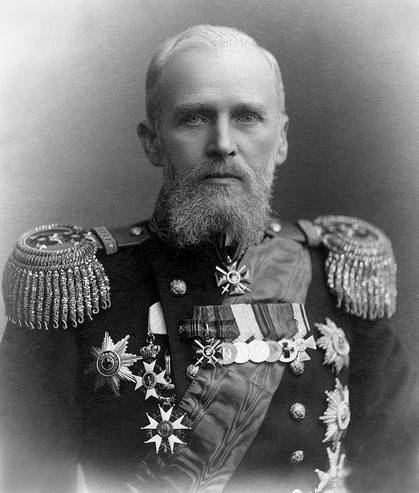
6. A. A. Ebergard
But the conflict with the still neutral Bulgaria was undesirable - and the sailors were advised to take Zunguldak, Eregli or Inadu as an intermediate base. 19 March N.N. Yanushkevich informed the Black Sea Fleet command that the difficulty of forcing the Bosporus and carrying out an amphibious operation while basing on Sevastopol is obvious, and the Emperor ordered to find out urgently how Bulgaria and the Allies would react to the landing in Burgas (without using armed force, of course).
Without resolving the issue of Burgas, the landing operation was difficult to carry out. And soon the situation on the Austro-German front forced 11 on May to decide on a different use of the airborne corps - in the development situation of the enemy's Gorlitsky strategic operation, it was decided to use it on the South-Western front. VN Nikitin, instead of the 5-th Caucasian Army Corps, transferred 2-I, 12-I and 38-I militia brigades.
When the information on the transfer of the expeditionary corps to the Austro-German front reached S. Xazon 13 in May, he pointed out to N. N. Yanushkevich the extreme undesirability of inappropriate use of the corps - after all, Tsargrad, the most valuable acquisition that Russia could give war, will be won exclusively by the efforts of our allies. From the Headquarters they replied that the operational-strategic situation in Galicia does not allow the future Bosphorus landing force to be “marinated” in Odessa and Sevastopol — it is required on the “most important” (as Stavka considered) the Austro-German front.
But the Foreign Ministry was reassured by the announcement of the Headquarters that, although the corps planned for the operation was indeed sent to Galicia, it was replaced by another unit located in Odessa. When S.D. Sazonov decided to inquire about the composition of the latter - he 15 learned in May that it consists of 3-x militia brigades, 3-x naval battalions (including the Guards crew battalion; the tasks of the Bosporus fortifications, Constantinople port and embankments, as well as mobile means), the Cossack regiment (and "one Caucasian division") - just up to 40000 people.
T. o. The Caucasian Army Corps was replaced by an uncombined heterogeneous group of troops with a numerical predominance of the militia units, whose combat value was low.
The corresponding attitude of the High Command of the acting army had negative consequences for one of the most promising operations of the world war. Of course, the unfavorable operational and strategic situation in the spring - summer of 1915 seems to justify the use of airborne troops for other purposes. But what during this period of war could make the corps on the Austro-German front? In the best case, temporarily suspend the development of the Austro-German breakthrough. The overall strategic environment was too unfavorable. On the Bosphorus, the corps could solve an important strategic task.
As soon as it became clear that the situation "did not allow" to allocate serious forces for the landing operation, it was decided to limit the bombardment of the Bosporus fortifications by the forces of the fleet and the demonstrative preparation of the landing forces in Odessa. And even it went to the benefit of the allies. Mr. Lorey in his work “Operations of the German-Turkish naval forces in 1914 - 1918”, pointed out that the German-Turkish command, having information from its agents about the concentration of transports in Odessa and about the preparation of the deployment of troops, concentrated in the Bosphorus region 4's corps - and did not allow military transfer from the area to the Dardanelles.
To be continued
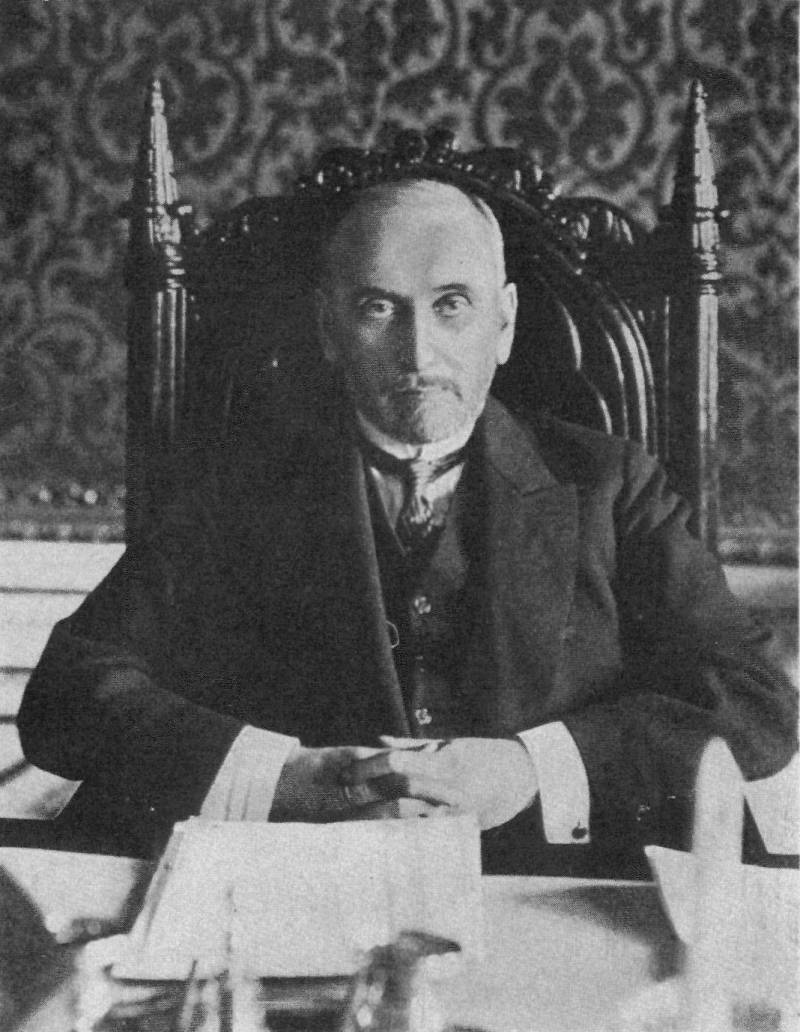
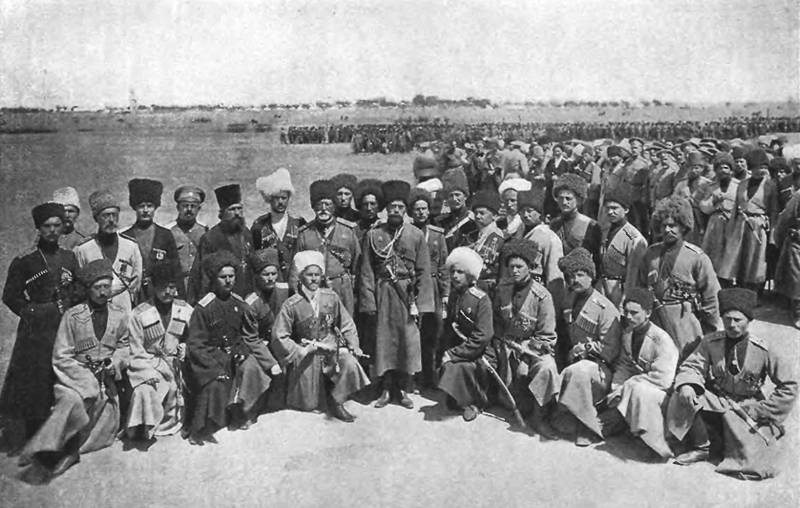
Information